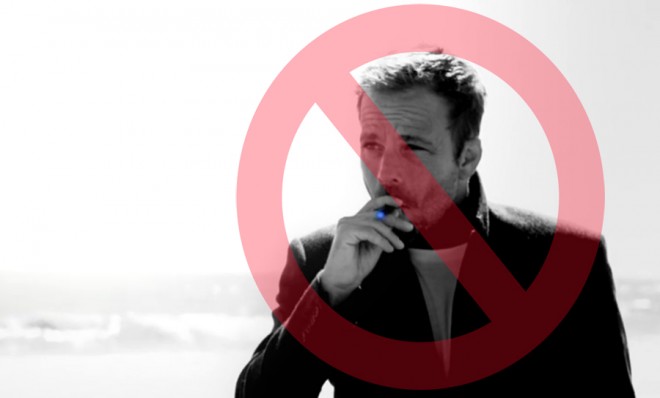New York City is eyeing a ban on electronic cigarettes
Smoke 'em while you got 'em


A free daily email with the biggest news stories of the day – and the best features from TheWeek.com
You are now subscribed
Your newsletter sign-up was successful
New York City Mayor Michael Bloomberg is so concerned with public health, he doesn't want people to even feign smoking anymore.
The mayor who banned trans fats and tried to kill large sugary drinks has turned his attention to electronic cigarettes, those pen-shaped devices that are supposedly a safer way to get your nicotine fix. The city's Health Committee is considering several proposed ordinances related to cigarettes, including one that would classify e-cigarettes as tobacco products, according to a leaked copy of those proposals obtained by the Consumer Advocates for Smoke-Free Alternatives Association.
The proposals, via CASAA, would:
The Week
Escape your echo chamber. Get the facts behind the news, plus analysis from multiple perspectives.

Sign up for The Week's Free Newsletters
From our morning news briefing to a weekly Good News Newsletter, get the best of The Week delivered directly to your inbox.
From our morning news briefing to a weekly Good News Newsletter, get the best of The Week delivered directly to your inbox.
• Redefine "tobacco products" under New York City law to include e-cigarettes and related components, parts, and accessories• Ban the display of e-cigarettes and smokeless tobacco in retail stores• Ban the sale of e-cigarettes or e-liquid in flavors other than tobacco, menthol, mint and wintergreen in areas other than an age-restricted "tobacco bar." New York City law prohibits "tobacco bars" that were not open in 2001, and thus even an e-cigarette store in New York City would be prohibited from selling flavored e-cigarettes!• Mandate that e-cigarette products and parts, components, and accessories only be sold in their original packaging [CASAA]
The battery-powered cigarettes typically use liquid cartridges containing nicotine and some other chemicals. They do not, however, contain tobacco, so they technically fall outside the laws that regulate traditional cigarettes. Would-be smokers are therefore allowed to "light up" in city establishments, like bars, confounding bouncers and patrons who often mistake an e-cig's small cloud of vapor for the real thing.
The proposals under consideration, critics say, would effectively outlaw e-cigarettes by regulating them into extinction.
"This is a de facto ban on electronic cigarettes," Dr. Michael Siegel, a professor at the Boston University School of Public Health, tells Gothamist. "Pretty much all electronic cigarettes are flavored; they're essentially flavored products. You're basically telling a bunch of ex-smokers to go back to cigarettes."
Across the country, California's legislature is considering similar legislation that would treat e-cigarettes like other tobacco products.
A free daily email with the biggest news stories of the day – and the best features from TheWeek.com
Yet whether e-cigarettes are actually safer than the real thing is still up for debate.
The Food and Drug Administration issued a warning about the products back in 2009, saying some samples contained ingredients found in anti-freeze. The agency added that the products were not approved by the FDA, and could not be deemed safe without further testing. Furthermore, critics say e-cigarettes serve no purpose but to perpetuate nicotine addiction.
A more recent Drexel University study released this month, however, concluded that the supplementary chemicals in e-cigarettes were not harmful to users or bystanders.
Jon Terbush is an associate editor at TheWeek.com covering politics, sports, and other things he finds interesting. He has previously written for Talking Points Memo, Raw Story, and Business Insider.
